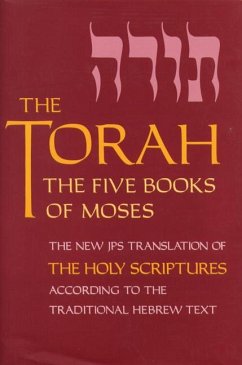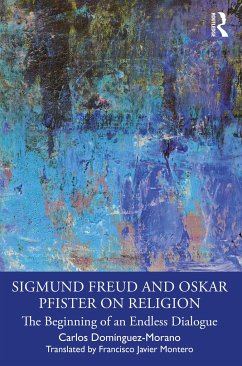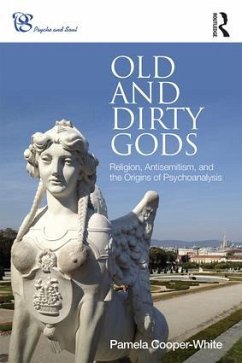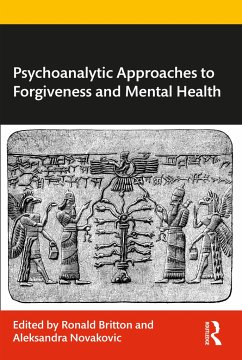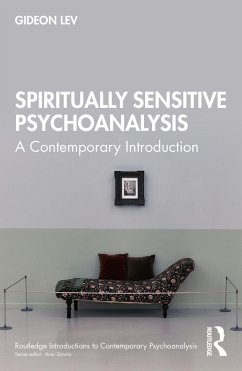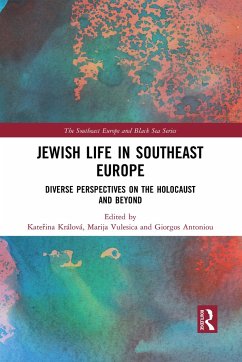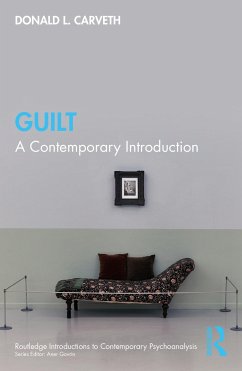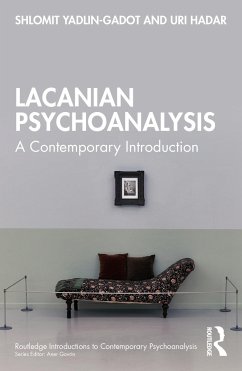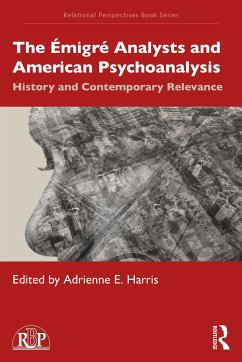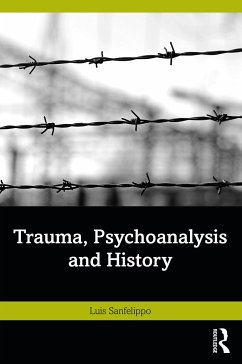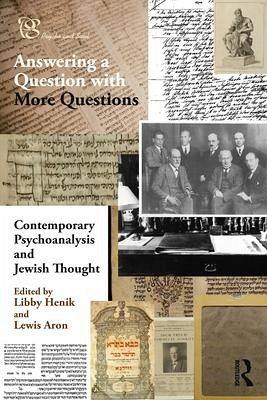
Contemporary Psychoanalysis and Jewish Thought
Answering a Question with More Questions
Herausgegeben: Henik, Libby; Aron, Lewis
Versandkostenfrei!
Versandfertig in 6-10 Tagen
34,99 €
inkl. MwSt.

PAYBACK Punkte
17 °P sammeln!
Demonstrating the connections between contemporary psychoanalysis, Jewish thought and Jewish history, this volume is a significant contribution to the traditions of dialogue, debate and change-within-continuity that epitomize these disciplines.The authors of this volume explore the cross-disciplinary connections between psychoanalysis and Jewish thought, while seeking out the resonance of new meanings, to exemplify the uncanny similarities that exist between ancient Rabbinic methods of interpretation and contemporary psychoanalytic theory and methodology, particularly the centrality of the que...
Demonstrating the connections between contemporary psychoanalysis, Jewish thought and Jewish history, this volume is a significant contribution to the traditions of dialogue, debate and change-within-continuity that epitomize these disciplines.
The authors of this volume explore the cross-disciplinary connections between psychoanalysis and Jewish thought, while seeking out the resonance of new meanings, to exemplify the uncanny similarities that exist between ancient Rabbinic methods of interpretation and contemporary psychoanalytic theory and methodology, particularly the centrality of the question and the deconstruction of narrative. In doing so, this collaboration addresses the bi-directional influence between, and the relevance of, the Jewish interpretive tradition and psychoanalysis to provide readers with renewed insight into key topics such as Biblical text and midrash, religious traditions, trauma, gender, history, clinical work and the legacies of the Holocaust on psychoanalytic theory.
Creating an intimate environment for interdisciplinary dialogue, this is an essential book for students, scholars and clinicians alike, who seek to understand the continued significance of the multiple connections between psychoanalysis and Jewish thought.
The authors of this volume explore the cross-disciplinary connections between psychoanalysis and Jewish thought, while seeking out the resonance of new meanings, to exemplify the uncanny similarities that exist between ancient Rabbinic methods of interpretation and contemporary psychoanalytic theory and methodology, particularly the centrality of the question and the deconstruction of narrative. In doing so, this collaboration addresses the bi-directional influence between, and the relevance of, the Jewish interpretive tradition and psychoanalysis to provide readers with renewed insight into key topics such as Biblical text and midrash, religious traditions, trauma, gender, history, clinical work and the legacies of the Holocaust on psychoanalytic theory.
Creating an intimate environment for interdisciplinary dialogue, this is an essential book for students, scholars and clinicians alike, who seek to understand the continued significance of the multiple connections between psychoanalysis and Jewish thought.





